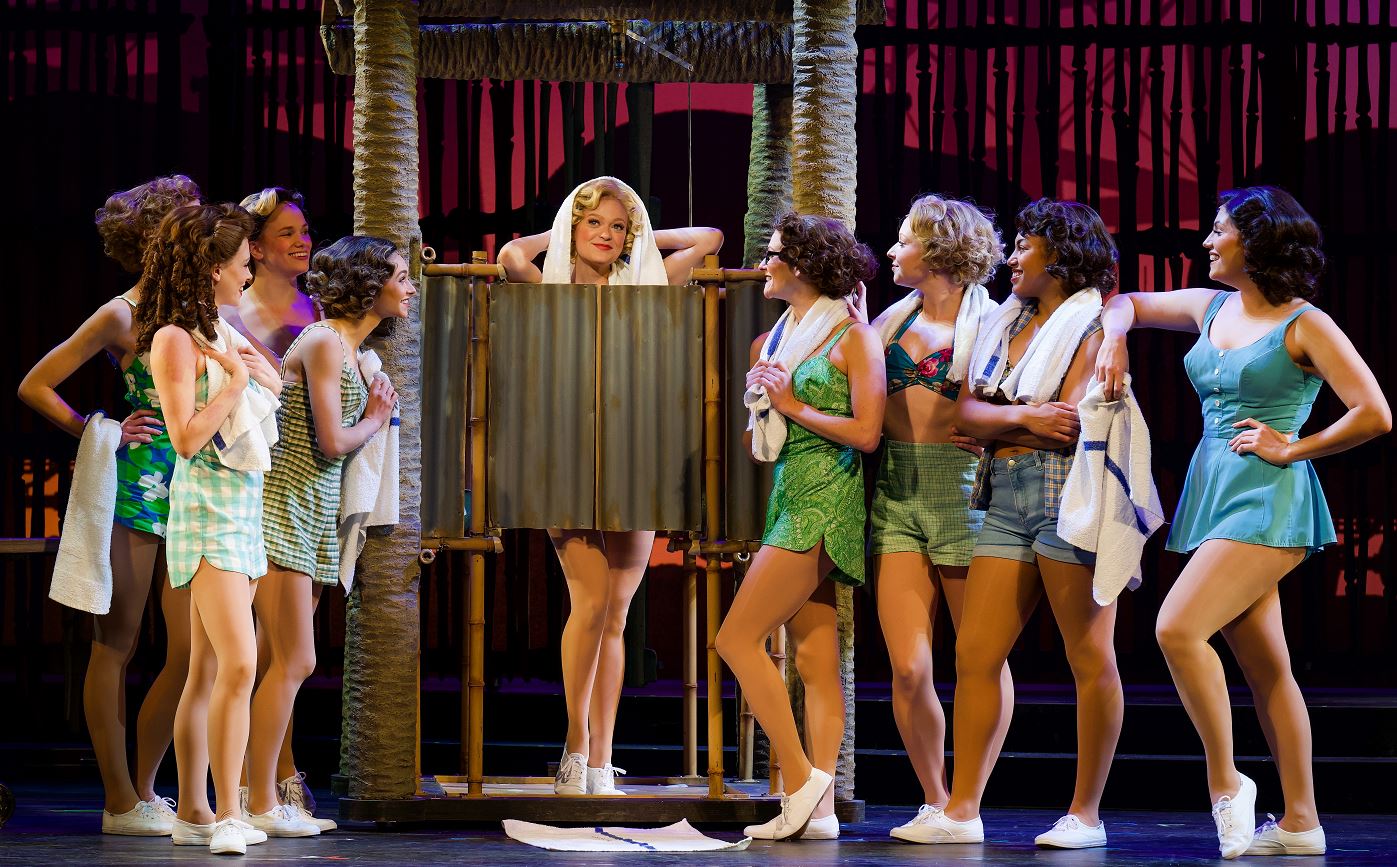South Pacific Pulitzer for Drama Proves Things Are Better Left Unsaid
Rodgers and Hammerstein’s South Pacific was the second play to ever receive a Pulitzer Prize for Drama. Taking home the coveted treasure in 1950, the Pulitzer committee defined South Pacific as “an original American play, performed in New York, which shall best represent in marked fashion the educational value and power of the stage, preferably dealing with American life.” Simply put, Rodgers and Hammerstein created an eloquent drama that utilized song and art to convey a powerful unspoken message.
Produced in 1949, South Pacific struck a chord with American culture. The dramatic nature of the musical began in the Majestic Theatre, now home to the Phantom of the Opera, where island settings, soldiers, and new cultures graced the stage. The aftermath of the war was in the air, leaving a society that was weighted with emotions, to burst into tears moments after the curtain rose.
The soldiers showcased in South Pacific were known as Seabees. A group of remarkable individuals, the Seabees were responsible for building 111 major airstrips, 441 piers, 2,558 ammunition magazines, 700 square blocks of warehouses, hospitals to serve 70,000 patients, tanks for the storage of 100 million gallons of gasoline, and housing for 1.5 million men. One of their lesser-known experiments included the construction of a floating airfield, made from the ubiquitous pontoons, which became one of the mainstays of the Seabee’s operations in the Pacific. Highlighting this particular group of men, and showcasing what life was like on an island, a million miles away from anything that was familiar to them, was a unique twist that America devoured.
The wallop that Rodger and Hammerstein deliver comes in expected highlights in songs like “You’ve Got To Be Carefully Taught,” which brought racism to the forefront of an audience at a time when it was heavy, and “Some Enchanting Evening,” a song that has since been covered by multiple artists. Yet, there are other less explicit messages that may explain why this particular drama received a Pulitzer.
During one of the scenes, a giant map highlights how close the Seabees are to the base of Guadalcanal. As the Seabees, and crew, march offstage, they’re heading into one of the most savage campaigns of the war, where over 7,100 soldiers died. While the map might seem like a simple stage prop today, it was a gut-wrenching reminder for the original audience – who reportedly sobbed in their seats.
As the men and crew march in battle fatigues there are no words spoken, simply because Rodger and Hammerstein felt they weren’t needed. Instead, the actors reprise the song “Honey Bun” in a lethargic whisper. It seems an odd choice at first until viewers realize the crew is clinging to a moment of happiness to shake off their rising fear.
America’s post-war audience might have fallen in love with a musical that hit so close to home, but 70 plus years later those same poignant pauses, and deliberation showcase what Rodgers and Hammerstein intended. This beautiful island, filled with women and humor, was never meant to be a place of paradise. It was simply a place to rest before the reality of war engulfed them, and for that, a Pultizer was rewarded.
Looking for tickets to South Pacific? Log on to www.broadwayutica.org, call 315-624-9444, or visit their box office at 258 Genesee Street in Utica.



